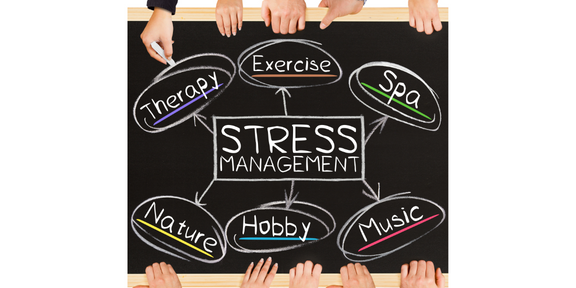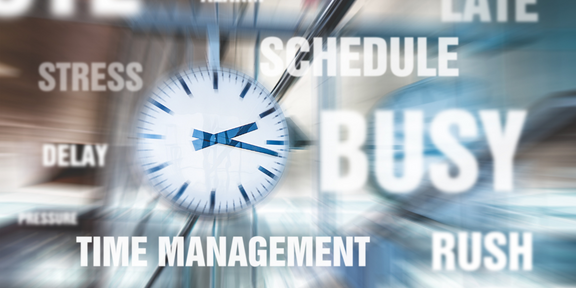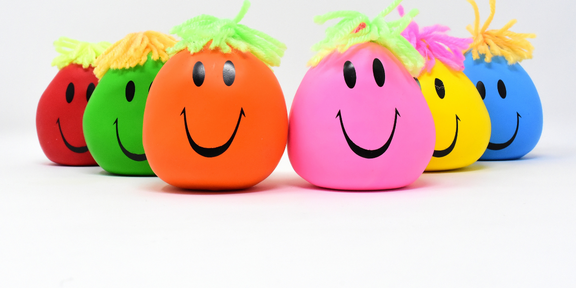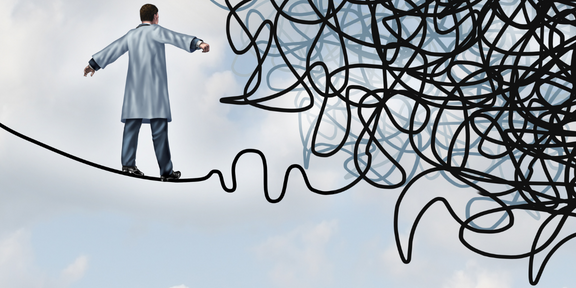Welcome to your ultimate guide to effective stress management! Stress is an inevitable part of life, but it doesn’t have to control us. By implementing practical stress management techniques, we can create a happier, healthier, and more fulfilling life.
The importance of stress management cannot be overstated. Research has shown that chronic stress can lead to a myriad of health problems, including high blood pressure, heart disease, and mental health issues.
On the other hand, effective stress management techniques have been linked to improved mood, increased productivity, deepened personal growth and better overall well-being.
Don’t let stress hold you back from living your best life. With the right tools, you can manage stress and achieve a stress-free existence. Let’s dive into the world of stress management and discover the techniques that will help you thrive.
Table of Contents
Understanding Stress and Its Impact
Stress is a natural reaction to the demands and challenges of everyday life. It is an emotional and physiological response to external or internal pressures, and it can manifest in various forms. Stress can affect individuals in different ways, with some experiencing physical symptoms, while others may feel overwhelmed emotionally.
The impact of stress can be detrimental to overall health and wellbeing. Prolonged exposure to stress can lead to chronic health conditions such as hypertension, depression, and anxiety disorders. It can also impair cognitive function, decrease productivity, and affect personal relationships and social interactions.
It is essential to understand the signs and symptoms of stress to effectively manage its impact. Common signs of stress include changes in sleep patterns, mood swings, physical tension, and changes in appetite. Ignoring these signs can worsen stress and lead to long-term health issues.
Recognizing Signs of Stress
It is crucial to recognize the signs of stress to prevent its negative impact. The following are some common signs and symptoms of stress to look out for:
- Agitation and irritability
- Anxiety and depression
- Difficulty sleeping or insomnia
- Changes in appetite or eating habits
- Physical tension and fatigue
- Difficulty concentrating or making decisions
If you notice any of these warning signs, it is essential to take steps to manage your stress levels effectively. Understanding the sources of stress is the first step in developing an effective stress management plan.
Identifying Sources of Stress
Stress can come from a variety of sources, and it is essential to recognize them to effectively manage them. Some common sources of stress include:
| Source of Stress | Impact |
|---|---|
| Work | Increased workload, long hours, lack of control, and poor relationships with colleagues or supervisors can cause stress in the workplace. |
| Relationships | Difficulties with family, friends, or romantic partners can cause stress. |
| Financial Pressure | Money problems, debt, and financial insecurity can all lead to stress. |
| Health Issues | Chronic illness, disability, or caring for an ill family member can cause stress. |
Aside from these, other sources of stress can include major life changes, such as moving, divorce, or losing a job, as well as environmental factors such as noise, pollution, or overcrowding. Identifying personal stress triggers can help individuals develop effective coping strategies and reduce the impact of stress on their lives.

Effective Stress Management Techniques
Stress is a common experience for many individuals, but finding effective ways to manage it can help alleviate its negative impact on overall well-being. Below are some effective stress management techniques that can be easily incorporated into daily life:
Relaxation Exercises
Relaxation exercises such as deep breathing, progressive muscle relaxation, and visualization can help reduce stress by calming the body and slowing down the mind. Try practicing these exercises for at least 10-15 minutes a day to promote relaxation and stress relief.
Mindfulness
Mindfulness is the practice of being present in the moment without judgment or distraction. It can help reduce stress by focusing the mind and promoting relaxation. Try incorporating mindfulness into your daily routine by taking a few minutes each day to meditate, practice mindful breathing, or simply focus on your surroundings.
Exercise
Regular exercise has been shown to be an effective stress management technique by promoting the release of endorphins, improving mood, and reducing tension in the body. Incorporating just 30 minutes of physical activity into your daily routine can have significant benefits for both physical and mental well-being.
Meditation
Meditation is a technique that can help reduce stress by promoting relaxation and reducing anxiety. Try practicing meditation for at least 10-15 minutes a day to reap the benefits of this stress management technique.
Remember, effective stress management requires a personalized approach. Experiment with different techniques to find what works best for you and make stress management a priority in your daily routine.

Creating a Stress Management Plan
If you want to effectively manage your stress, it is important to create a personal stress management plan. This plan will help you stay on track and make stress-reducing habits a part of your daily routine. Here are some steps you can take to create a stress management plan that works for you:
Set Goals
Start by setting realistic goals for yourself. What do you hope to achieve by managing your stress? Do you want to feel more relaxed, improve your concentration, or sleep better? Write your goals down and refer to them often to help keep you motivated.
Prioritize Self-Care
Make self-care a priority. This means taking care of your physical, emotional, and mental health. Make sure you are getting enough sleep, eating healthy foods, and getting regular exercise. Take time for yourself each day to do something you enjoy, such as reading a book or taking a walk.
Incorporate Stress-Reducing Activities into Your Routine
Find activities that help you relax and make them a part of your daily routine. This could include meditation, yoga, or deep breathing exercises. Experiment with different activities to find what works best for you.
| Tip: | Start small. If you are new to stress management techniques, begin with just a few minutes each day and gradually increase the time as you become more comfortable. |
|---|
Be Consistent
Consistency is key when it comes to managing your stress. Stick to your stress management plan, even when you don’t feel stressed. This will help you build healthy habits and make stress management a part of your everyday life.
Seek Support
Don’t be afraid to seek support from family, friends, or a mental health professional. Having someone to talk to can help you manage your stress and provide you with additional resources to help you cope.
Remember, managing stress is a lifelong journey. By taking the time to create a stress management plan that works for you, you can reduce the negative impact of stress and enjoy a more peaceful, fulfilling life.

Stress Management Techniques for Work
Work-related stress is a common issue that can negatively impact productivity and overall well-being. Fortunately, there are effective stress management techniques that can be practiced in professional settings to alleviate stress and enhance job satisfaction.
Time Management
Effective time management can reduce stress by allowing individuals to prioritize tasks and meet deadlines. Creating a daily to-do list and breaking down larger projects into smaller, actionable steps can help manage workload and prevent feeling overwhelmed. Time management tools such as calendars, reminders, and task lists can also be helpful in managing work-related stress.
Setting Boundaries
Setting boundaries is crucial in managing work-related stress. It is important to establish clear expectations with colleagues and managers regarding work hours, workload, and communication. Learning to say “no” to additional tasks and delegating responsibilities can also help manage stress and prevent burnout.
Effective Communication
Clear and effective communication is essential in reducing stress in the workplace. Communicating expectations, concerns, and feedback with colleagues and managers can prevent misunderstandings and reduce tension. Active listening and assertive communication can also improve relationships and overall job satisfaction.
Seeking Support from Colleagues
Collaboration and support from colleagues can be invaluable in managing work-related stress. Seeking advice, sharing ideas, and asking for help when needed can reduce workload and prevent feeling overwhelmed. Building a network of supportive colleagues can also enhance job satisfaction and overall well-being.

Stress Management Programs and Tools
While developing your own stress management plan can be highly effective, there are also a variety of stress management programs and tools available to assist you in managing stress. These resources can provide professional guidance and support, as well as access to helpful tools and techniques.
One popular program is Mindfulness-Based Stress Reduction (MBSR), which teaches individuals how to cultivate mindfulness through meditation and other techniques. MBSR has been shown to reduce symptoms of stress and anxiety, as well as improve overall well-being.
Online stress management resources are also widely available, including stress management websites and mobile applications. Many of these resources provide guided meditations, relaxation exercises, and other helpful tools to manage stress on-the-go.
Stress Management Tools
In addition to stress management programs, there are also a variety of tools available to help individuals manage stress. One popular tool is the journal, which can help individuals reflect on their thoughts and emotions, as well as identify sources of stress. Another effective tool is biofeedback, which uses electronic monitoring to help individuals track and regulate their physical responses to stress.
Other stress management tools include stress balls, soothing music, and aromatherapy. By experimenting with different tools and techniques, individuals can find what works best for them in managing stress.

Stress Management Tips for Daily Life
Effective stress management is essential for achieving a healthier and happier lifestyle. The good news is that there are several stress management tips that can be easily incorporated into daily life. Here are some tips to help you reduce stress and live a more peaceful life.
1. Prioritize Self-Care
Take care of yourself physically, mentally, and emotionally. Get enough sleep, eat a healthy diet, and make time for regular exercise. Engage in activities that bring you joy and relaxation, such as reading, gardening, or taking a hot bath. Practice self-compassion and be kind to yourself.
2. Practice Mindfulness
Mindfulness is the practice of being present in the moment. Take a few minutes each day to sit quietly and focus on your breath. When your mind wanders, gently bring your attention back to your breath. This can help you feel more centered and calm.
3. Connect with Others
Social support is essential for managing stress. Connect with friends, family, or a support group. Reach out to others when you need help or just want someone to talk to. Helping others can also be a great way to reduce stress and boost your mood.
4. Time Management
Effective time management can help you reduce stress and increase productivity. Make a to-do list and prioritize tasks based on importance. Use a calendar to schedule appointments and deadlines. Delegate tasks when possible and avoid overcommitting yourself.
5. Practice Gratitude
Take time each day to reflect on what you’re grateful for. This can help shift your focus away from stress and onto the positive aspects of your life. Write down three things you’re thankful for each day or share them with a friend or loved one.
6. Take Breaks
Take regular breaks throughout the day to rest, stretch, or take a short walk. This can help you feel more refreshed and energized. Take time off when you need it, whether it’s a vacation or a mental health day.
Conclusion
By incorporating these stress management tips into your daily life, you can reduce the impact of stress on your physical and mental well-being. Remember to be patient with yourself and celebrate small successes along the way. Choose the techniques that work best for you and make them a part of your daily routine. A stress-free life is within reach!
FAQ
Stress management can sometimes be a confusing and overwhelming concept. Here are answers to some of the most frequently asked questions about stress management to help you better understand and implement effective stress management techniques.
What is stress management?
Stress management is the process of identifying and reducing stress levels in our lives. This may involve implementing various techniques and strategies to manage stress, such as exercise, relaxation, mindfulness, and time-management.
Why is stress management important?
Stress can have a negative impact on our physical, emotional, and mental well-being. Effective stress management can help to improve our overall health and quality of life, allowing us to better cope with stress and lead a more fulfilling life.
How do I know if I am experiencing stress?
Stress can manifest in various ways, including physical symptoms such as headaches, fatigue, and muscle tension, as well as emotional and behavioral symptoms such as irritability, anxiety, and changes in eating or sleeping patterns. It’s important to recognize these signs and take action to manage stress effectively.
What are some effective stress management techniques?
There are various stress management techniques that can be effective, including relaxation exercises, mindfulness, deep breathing, and meditation. Exercise, healthy eating, and social support can also help to reduce stress levels. It’s important to find the techniques that work best for you and incorporate them into your daily routine.
How do I create a stress management plan?
Creating a stress management plan involves identifying personal stress triggers, setting goals, and prioritizing self-care activities. It’s important to develop a plan that is personalized to your own needs and lifestyle, and to incorporate stress-reducing techniques into daily routines.
Can stress management techniques be used in the workplace?
Yes, stress management techniques can be helpful in managing workplace stress. Time management, setting boundaries, effective communication, and seeking support from colleagues are just a few examples of techniques that can be implemented in the workplace to reduce stress levels.
Are there professional stress management programs available?
Yes, there are professional stress management programs available that can provide support and guidance in managing stress. Online resources and mobile applications can also be helpful in providing tools and techniques for stress management.
How can I incorporate stress management techniques into my daily life?
There are many ways to incorporate stress management techniques into daily life, such as setting aside time for relaxation exercises, taking breaks throughout the day to stretch or practice mindfulness, and prioritizing self-care activities such as exercise and healthy eating. It’s important to identify the techniques that work best for you and make them a regular part of your routine.
Hopefully, these answers have provided you with a better understanding of stress management and how it can be used to achieve a stress-free life. Remember, effective stress management starts with recognizing the signs of stress and implementing various techniques and strategies to manage it.
Personal Development Unlimited is your go-to place to be You, Without Limits. We bring together personal development and self-improvement articles, books, courses and videos in one place. Find your self-growth opportunities easily.
Comments
0 comments



